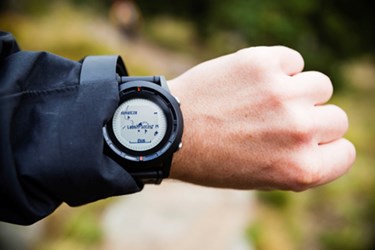3 Of 4 Americans Plan To Purchase A Fitness Device

By Katie Wike, contributing writer

Wearables aren’t dead according to a Consumer Technology Association survey which found 75 percent of Americans plan to purchase a new fitness device in the next year.
Last year, Health IT Outcomes reported 1 of 3 wearables users stop using their devices after just six months. “Users quickly abandon wearables that don’t help them make positive changes,” explained experts. However a more recent survey, from the Consumer Technology Association, says 3 of 4 consumers plan to purchase a new wearable device this year.
MobiHealth News writes 1,001 U.S. adults took part in the online survey. The largest portion, 35 percent, said they plan to buy a smartwatch in the coming year. Thirty percent of users expressed interest in downloading fitness related apps, 27 percent said they plan to get a dedicated fitness tracking device, 27 percent said they want to purchase smart apparel, and 23 percent plan to get a device that tracks sleep patterns.
Steve Koenig, senior director of market research, CTA said in a press release, “Consumers’ planned purchases within this emerging category are emblematic of robust segmentation, as the industry strives to address multiple needs of ‘the quantified self.’”
According to iHealth Beat, the most desired features of a fitness device were:
● calories burned, cited by 61 percent
● heart rate, cited by 52 percent
● steps taken, cited by 42 percent
● distance traveled, cited by 34 percent
● blood pressure, cited by 23 percent
“The potential of securely harnessing valuable health data will have a transformative impact on our lives — from the ability to identify early-onset diseases, offer preventive health benefits, assist in managing chronic conditions and provide more effective remote care of your loved ones,” said Shawn DuBravac, Ph.D., chief economist and senior director of research, CTA. “Consumers see the potential for benefits from sharing health and fitness data with friends, family and medical professionals and they expect privacy to be balanced with those benefits.”
